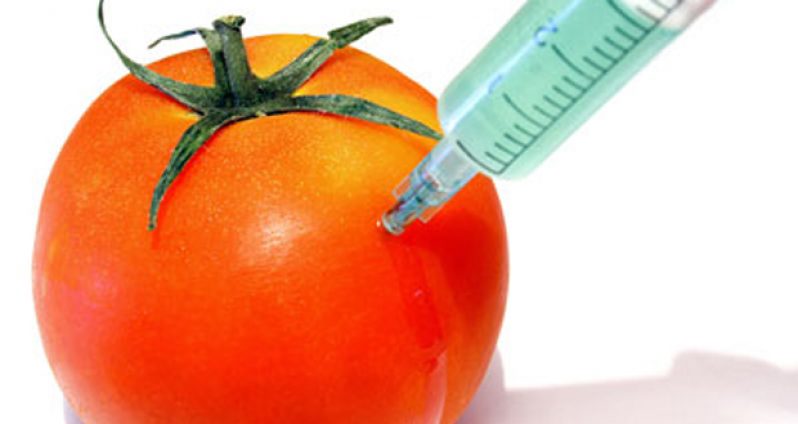-Commission on Science and Technology will soon be addressing the issue
WITH the Commissioning of two high tech agricultural laboratories at Mon Repos, East Coast Demerara earlier this week, Guyana now has the capacity to produce Genetically Modified (GM)foods.
But should Guyana be embarking on this largely controversial method of food production also known as GMO?
The question was raised by Agriculture Minister Dr. Leslie Ramsammy during the commissioning ceremony earlier this week.
Generally opponents of GM food production worldwide have consistently warned that these foods are not safe for human consumption.
Recently seen in a anti-GMO publication was a child with an anti -GMO poster saying: ”I am not a scientific experiment.”
Anti-GMO activists say that shopping organic is one of the best steps consumers can take towards ensuring that their family eats the healthiest foods possible.
But as of 2013 the United States leads a list of multiple countries in the production of GM crops, and 25 GM crops had received regulatory approval to be grown commercially, Dr Ramsammy pointed out.
“As of 2013, roughly 85% of corn, 91% of soybeans, and 88% of cotton produced in the United States were genetically modified,” he said.
Dr Ramsammy told the gathering that all those who have used corn oil, or canola oil or soya products or cotton products from the US have been using GMOs.
He added: “We now even have in countries like the US, GM squash GM papaw GM alfalfa.One hundred and sixty five million acres of land in the US are under cultivation with GM products and around the world 366 million acres of land are dedicated to GM food products.
Noting that the establishment of the Tissue Culture and Bio Control laboratories means that Guyana can now manipulate DNA and develop GM foods, he asked: “Will we or will we not get into GMOs? Remain organic? Or will we just go with the flow?”
He said that the time has come for Guyana and developing countries generally to make a decision on GMOs, one way or the other.
CARICOM in particular, he said, should complete its policy on GMOs because:” without a policy we will be dragged in a certain direction.”
He said that in the meantime another noteworthy thing about the two new laboratories was that they would enable staffers to identify GMOs..
He said: “For example we are expanding corn now and soya. With these labs we can now examine seeds to see whether they are in fact hybrid corn, hybrid soya or GM corn or GM soya. This is a practical example of what these laboratories and what we in Guyana can now do.”
He said that the Commission on Science and Technology which is chaired by President Donald Ramotar will soon be addressing the issue of GMOs and how Guyana will deal with the issue within the framework of a larger national policy on application of of bio-technology in food production.
(By Clifford Stanley’)




.png)









